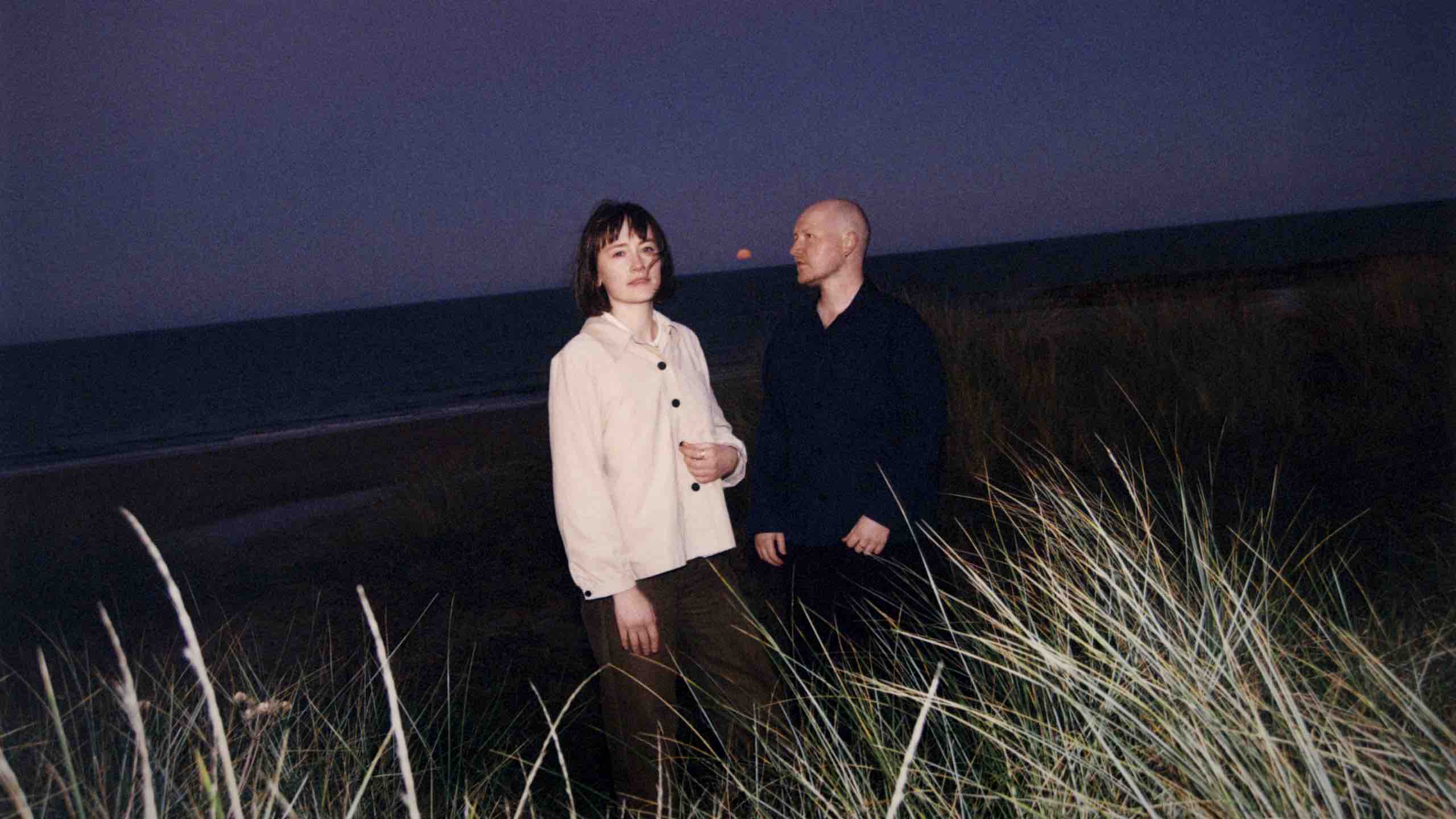Ever love a lesser-known band so much that you don’t want to share it with anyone else? Well, consider for a moment what artists must feel when they’ve established chemistry among themselves, but realize that in order for their band to evolve and reach new heights, they need to bring in additional personnel. And now consider what it’s like for a band that consists of twin siblings to have to make that decision. That’s the indisputably chief point of discussion about Pink Silence, the third full-length by electronic-rock duo Cloth. The irresistibly intimate and inviting record, which is impossible to peel away from after the moment you press play, comes courtesy of Rock Action Records, the label run by fellow Glaswegians Mogwai.
Bearing that in mind, combined with Rachael and Paul Swinton’s decision to welcome a few guest players into the fold at the behest of the album’s producer Ali Chant, Mogwai main man Stuart Braithwaite was a natural recruit for the project. As were Portishead guitarist Adrian Utley and Owen Pallett, who’s been a mainstay in the Canadian indie scene for two decade with his project Final Fantasy and beyond. But the magic of Pink Silence is that, had you not just read the previous sentence, you probably wouldn’t have recognized those guests’ presence on the record; they’re that discreet.
With the album out today, we spoke with the Swinton twins about their deft creation of Pink Silence, Paul’s struggle with OCD, and the love they have for their Cloth project—and each other.
How did you retain the intimacy of Cloth’s sound while simultaneously making Pink Silence sound more bold and grand?
Paul: Rachael being a softer singer and almost whispery at times—that fosters an intimacy quite quickly. People have talked to us about how they connect quite powerfully with the first two records, and I didn’t want to lose that. We want to write music that fosters an emotional connection with the listener, which is why we use close-miking.
Rachael: When we met with Ali, I asked him outright: “What makes the best albums?” He said it’s when the artist lets go. Our previous approach was to hold onto small, nitty-gritty details. But when you’re so close to something, you can’t see the forest for the trees, right? So this time, we let go in terms of not being too precious about takes. We got more into the performance. We also placed more trust in Ali, and took his advice for vocal production and suggestions for contributors.
Did you write lyrics about letting go of broken relationships and lost friends and being too hard on yourselves after you settled on your similar approach toward making the music—or vice versa?
Paul: To an extent, but I think it was subconscious. The real reason we pursued our approach was because the new approach we adopted of letting go was yielding great results.
Rachael: I think those cogs began turning whether I knew it or not. The lyricism, in my opinion, came from our new approaches [to making music].
Some say the one to two hours before daybreak are the most effective period of sleep, when your body replenishes itself most fully. Does Pink Silence refer to that concept, or the idea of a new day?
Rachael: There is a powerful duality there, because quite often you hear people talk about how their demons or what they’re wrestling with can seem most potent at nighttime, when the sun’s beginning to set and the darkness is creeping in. But conversely, there’s a lot of people who really celebrate that time [of day]. It might be the same people; it just depends on what your outlook is at a given time.
Paul: It can be a very beautiful, tranquil time—or it can be a very charged time. I think, when the sun is rising, it’s beautiful. But also, for me, sometimes it feels like the day is starting to stretch out ahead of you, and you don’t know what’s going to happen. There’s uncertainty there. Like, if you’re not going through a great time, you can feel it at all hours, and [you realize] there’s a whole new day that you need to grapple with.
As twins, you must have been at least somewhat wary about welcoming collaborators into your insular world. Did you select musicians that would ensure that the record would sound as seamless as it does?
Rachael: Absolutely. It was scary at first, to trust someone else. We have, in fact, been very guarded with our music. We were so “insular,” as you say, for so long. But once we realized we respected their opinions, we got to a place where collaborating didn’t feel as frightening and like control was being taken away from us. It felt like they added to our music rather than take it in a different direction. Now, the idea of opening up and working with new people feels really exciting. All three are humble, and the record wouldn’t be the same without them.
Paul: I have OCD and used to try to control things that can’t be controlled. I had a powerful awakening when I realized I had to come to terms with what I couldn’t control. Stuart helped with that in some respects because, while he obviously treats his work seriously, he’s always cracking jokes. I think earlier on we were maybe too serious about our music.
What do you love most about each other?
Paul: That’s a lovely question we’ve never been asked. Rachael has a passion that can’t be stopped. I always feel safe and trusting of her, because she always does everything with care, attention, and pride.
Rachael: You’re an optimist. You’re my hype man. You back me up. You have the right words of wisdom when I need them. And you’re always there for me.







